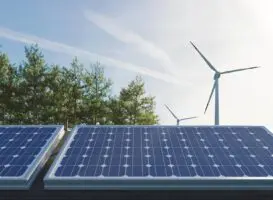Norwegian resources giant Equinor has ditched controversial plans to drill for oil in the waters of the Great Australian Bight, after declaring the $200 million exploration project “not commercially competitive” for the company.
In a statement on Tuesday, Equinor said it had informed the Australian authorities of its decision to discontinue its exploration drilling plan – Stromlo-1 – in the Ceduna sub-basin, despite having full state and federal government approvals to do so.
The decision comes barely two months after Equinor’s Environment Plan for the Bight was approved by the National Offshore Petroleum Safety and Environmental Management Authority.
Equinor country manager for Australia, Jone Stangeland, said that despite that approval confirming the company’s ability to safely operate in the Bight, it had “decided to discontinue its plans … as the opportunity is not commercially competitive.”
The news has been hailed as a “people-powered” victory by Australian environmental and indigenous groups, many of which have campaigned fiercely against the project since Equinor’s first exploration permit was granted in 2011.
The Wilderness Society, which last month launched a legal campaign to challenge the environmental approval, said the “hundreds of thousands of people” that had supported the campaign to Fight for the Bight would be both delighted and relieved to hear the news.
“We’ve worked tirelessly alongside the community to ensure that the Bight can be protected from irresponsible fossil fuel exploitation,” said the organisation’s S.A. director Peter Owen.
Today we say an enormous congratulations to the Mirning Traditional Owners who have fought tirelessly against Equinor’s drilling from the very start.
— Greenpeace Aus Pac (@GreenpeaceAP) February 25, 2020
The Norwegian company Equinor has become the third major fossil fuel producer to abandon plans to drill for oil in the Great Australian Bight. #keepitintheground https://t.co/SK5H9i75fO
— 350 dot org (@350) February 24, 2020
Newly appointed federal resources minister Keith Pitt, meanwhile, described the decision as “extremely disappointing,” and particularly hard for South Australia, but stressed that the Coalition would continue to encourage the development of Australia’s offshore fossil fuel resources – and that the Bight was still open for business.
“The Bight remains one of Australia’s frontier basins and any proposals for new oil and gas fields in this area will be assessed daily and independently,” Pitt said in a statement on Tuesday.
Equinor is not the first oil major to abandon plans to drill in the Bight; BP and Chevron scrapped their own drilling programs there in 2016 and 2017, respectively – although they pledged to spend $116.5 million in oil and gas exploration elsewhere in Australia.
“Four major oil companies have now left the Bight since the Fight for the Bight began,” said the Wilderness Society in its statement on Tuesday, adding the recent withdrawal of Karoon Gas to the list.
“It’s clear that drilling the Bight is not a sensible proposition. Opening up a new high-risk frontier oil field when we are hurtling towards catastrophic climate change is madness,” said Owen.
And while Equinor says its decision was commercial – albeit based on a “holistic review” of its exploration portfolio – the company just this month pledged to halve the carbon intensity of the energy it produces by 2050.
As reported in the Financial Times, the target, which includes emissions from both production and customer consumption, will be bolstered by “major” investments in offshore wind and by restricting oil production to the least carbon-intensive fields.
“Today we are setting new short, mid and long-term ambitions to reduce our own greenhouse gas emissions and to shape our portfolio in line with the Paris Agreement,” said chief executive Eldar Saetre.
In a statement on Tuesday, The Australia Institute welcomed the news of Equinor’s change of plans, and called for the Great Australian Bight to be given World Heritage protection.
Big news that #Equinor, the Norwegian energy giant is pulling out of oil drilling plans in the Great Australian Bight in SA!
Congrats to all those involved like @noah_sbyard!
There is no carbon budget left for massive new fossil fuel projects #auspol #saparli https://t.co/eUtMOTYF4x
— Richie Merzian (@RichieMerzian) February 24, 2020
“With three global giants abandoning their plans to drill in the Bight, the time for the government to give the South Australian community the certainty and permanent protection for the Great Australian Bight has come,” said Noah Schultz-Byard, TAI’s South Australian director.
Tim Buckley from IEEFA also wecolmed the news of the abandoned project, which he described as a “potential environmental and financial disaster.”
This is great news – Equinor has walked away from its potential environmental & financial disaster in the Great Australian Bite. A sensible decision, at last. ????????????????✅https://t.co/iaSJepLrBN
— ???? Tim Buckley (@TimBuckleyIEEFA) February 25, 2020
South Australian Labor MP Tom Koutsantonis, who was energy minister (and highly critical) when BP and Chevron pulled out of the Bight, said on Twitter that the withdrawal of Equinor was evidence of a flawed exporation approvals system.
If it’s uneconomic to drill or environmentally unsustainable to drill, or both, why issue the exploration licences to begin with?
Such a flawed system. https://t.co/66VKUo987K
— Tom Koutsantonis MP (@TKoutsantonisMP) February 25, 2020








